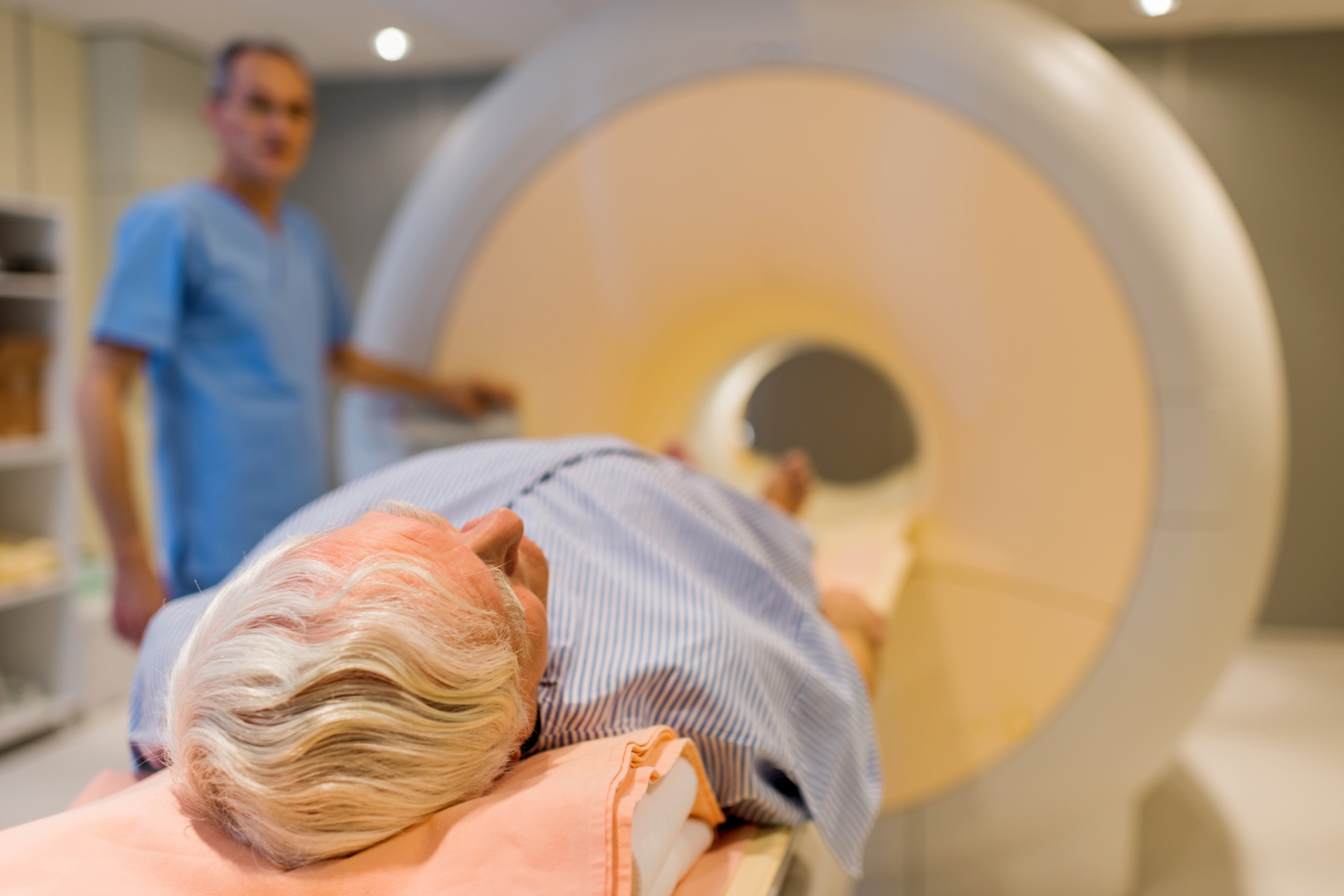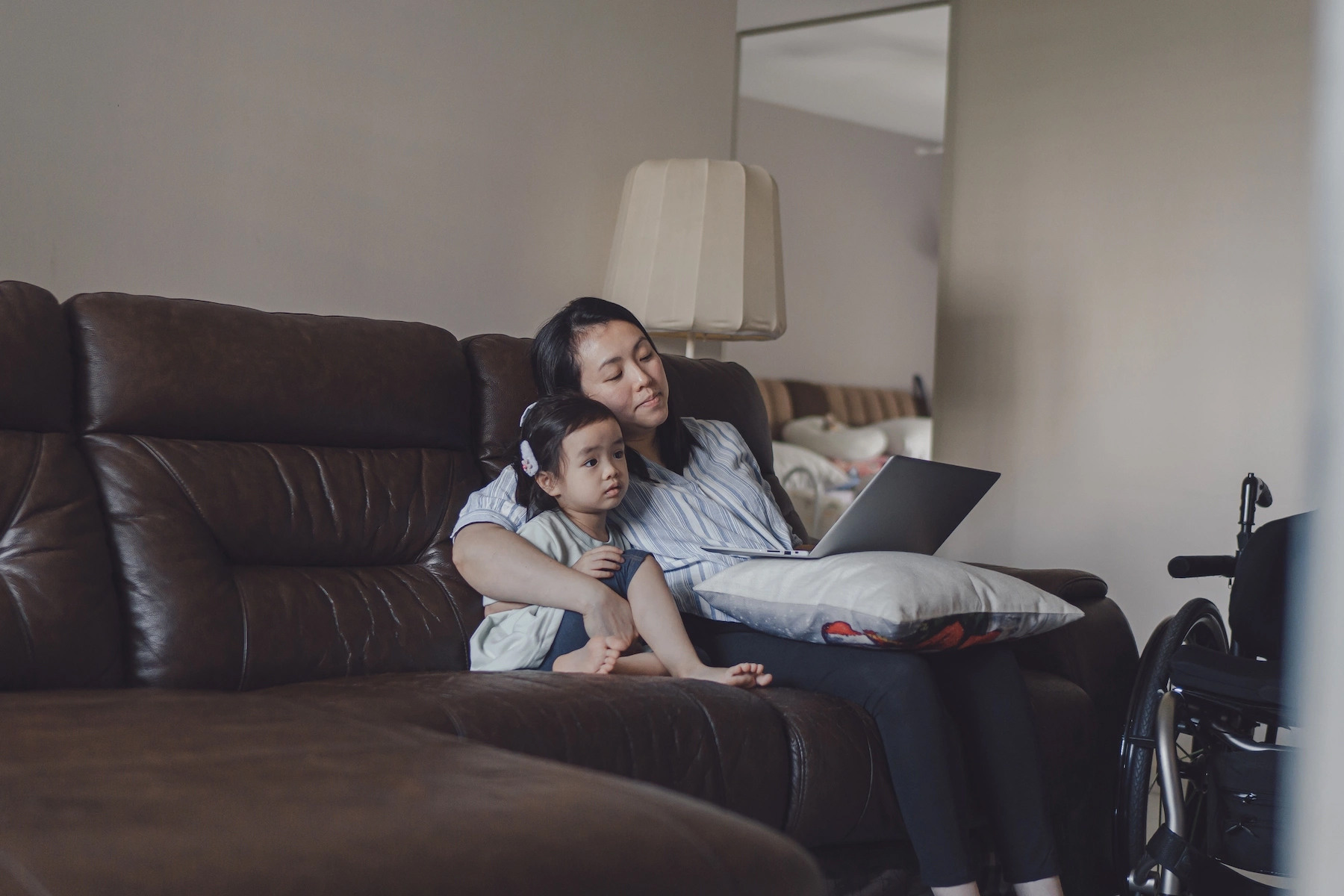Adjusting to a new culture can be challenging, especially when it comes to navigating attitudes and services related to sexual and reproductive health, which may differ from what you’re accustomed to in your home country.
Fortunately, Singapore’s healthcare system, ranked among the world’s best, provides expats with a mix of public and private clinics, offering comprehensive support for everything from contraception to sexually-transmitted infections (STI) treatment.
Discover the sexual healthcare system in Singapore, as well as local attitudes and practical tips on where to get treatment:
- Societal attitudes towards sex and sexuality in Singapore
- How do you access Singaporean sexual health services?
- Health insurance for sexual and reproductive healthcare in Singapore
- What forms of contraception are available in Singapore?
- Pregnancy and childbirth in Singapore
- Can you get an abortion in Singapore?
- Sexual health, STIs, and STDs in Singapore
- Menstrual health in Singapore
- What cancer screening programs are available in Singapore?
- Services in Singapore dealing with sexual problems
- Services dealing with sexual abuse and assault in Singapore
- Young people’s sexual health in Singapore
- LGBTQIA+ sexual health in Singapore
- Useful resources
Allianz Care
Allianz Care is a world leader in providing international health insurance. Their various premiums provide professionally designed solutions for a variety of expat lifestyles. So, wherever your life takes you, make sure you have the right health protection for you and your family with Allianz Care.
Societal attitudes towards sex and sexuality in Singapore
Singapore has long been a socially conservative country. In a University of Singapore survey (2021), citizens showed generally low support for homosexuality, pre-marital cohabitation, and casual sex. This conservatism is apparent in law, too, where you can be fined for simply being nude at home if you’re visible to a member of the public.
Despite these traditional views, attitudes are becoming more liberal. Singapore’s youth, in particular, are steering these changes.

Significant steps have been taken over the past decade to improve the rights of Singapore’s LGBTQIA+ community. The government decriminalized gay sex in 2022 and implemented new legislation to protect Singaporean LGBTQIA+ residents from religiously motivated attacks. There is still plenty of change needed to equalize rights across the board, but these legal protections are steps in the right direction.
Family remains integral to local culture, with some 99.2% of Singaporeans considering it their most important priority, according to the Our Singapore Values survey by the Institute of Policy Studies (IPS, 2021). Filial piety – where children are expected to look after their elders – is also dominant in the country.
Despite these strong attitudes, Singapore’s birth rates are falling, and many couples are choosing to have children later in life, if at all. This has led to public financial incentives to encourage family expansion, for instance:
- New parents get more money (earlier) in their newborns’ Child Development Accounts (CDA)
- Increased Baby Bonus benefits
How do you access Singaporean sexual health services?
Singapore’s healthcare system consists of a mix of public and private institutions. Most healthcare services, including sexual health treatments, are subsidized for permanent residents under the Ministry of Health’s 3Ms. This helps keep treatment affordable through national insurance.
Unfortunately, expats are not eligible for this system unless they take up permanent residency. You should, therefore, look into private insurance to keep medical costs down. Some reputable providers include:
Your first port of call for any sexual health concerns should be your general practitioner (GP) or doctor. You can also attend specialist sexual health clinics and anonymous test sites, like the Department of Sexually Transmitted Infections Control (DSC) or the National Centre for Infectious Diseases (NCID), for specific needs.
While you can attend general pharmacies across Singapore for medication, sexual health clinics offer the best stock of prescriptions.
If you are not sure which service is best for you, simply head to HealthHub – the official national platform for digital health services – to find a local clinic. There’s no need to pre-register for an appointment, as this process is typically smooth and quick on arrival. You can also use your SingPass ID to book a consultation.
Health insurance for sexual and reproductive healthcare in Singapore
Sexual health checks are typically subsidized under Singapore’s national insurance system. It may be best for permanent residents to seek testing and advice from their local doctor or polyclinic, especially if their Community Health Assist Scheme (CHAS) provides free appointments.
Otherwise, private health insurance offers a more comprehensive range of services available through local independent clinics.
Reproductive health is also subsidized in Singapore, with more comprehensive insurance plans offering better coverage. For example, couples may want to take out insurance to cover infertility treatments, such as IVF cycles.
There is a wealth of private health insurance providers in Singapore for expats. Premiums will depend on the level of coverage you require, your age, and any pre-existing medical conditions. Some of the most comprehensive suppliers include:
If you’re unsure which plan suits you, make sure to read more about health insurance in Singapore.
What forms of contraception are available in Singapore?
Condoms
Condoms are the most common form of contraception in Singapore. You can readily pick them up from most grocery, convenience, and cosmetics stores across the country. Alternatively, there’s a flourishing online market for the discreet purchase of condoms and pleasure toys. Expect a branded packet of 10 to cost around $20.
Other forms of contraception are less prevalent in Singapore because they require prescriptions.
Birth control pills
Birth control pills require a prescription. You can book a doctor’s appointment, talk with your local clinic, or opt for an online consultation to get them.

Monophasic 21-day pills are the most commonly prescribed type in Singapore, but other options like progestin “mini pills” are also available.
Transdermal patches
Transdermal patches work like a pill but do not need to be used daily to render effective. Book an appointment with your doctor or gynecologist if you are interested in using them, as they are only available with a prescription.
Contraceptive injections
Again, contraceptive injections are available with a prescription and work like pills but with less regularity. So much so that you’ll only need to receive an injection every 12 weeks. Most clinics in Singapore prescribe Depo-Provera.
Intrauterine device (IUD)
This is a T-shaped device that is inserted into a woman’s uterus for up to 5 years. It’s available by prescription.
Morning after pill
Emergency conception pills help to prevent pregnancy after unprotected sex. It is more effective the earlier it’s taken. However, a prescription is required, so visit your local GP as soon as you can.
If your doctor can’t (or won’t) provide you with a pill, visit another clinic. Remember, you must book a consultation in person and a partner cannot do this for you.
Sterilization
Permanent surgery in the form of a vasectomy (males) or tubular ligation (females) is an effective option for long-term couples. Costs for the procedure start from $1,500 for insurance holders.
Family planning services
You can seek family planning advice and services at specialist clinics and local polyclinics in Singapore. They generally offer advice and prescriptions for birth control, contraception, and STD prevention. You can also book pre-conception counseling, infertility appointments, and pre-pregnancy tests.
Pregnancy and childbirth in Singapore
The number of births decreased in Singapore to a new historic low in 2022. Many women are also deciding to have children later in life, resulting in an increase in child-bearers in their 40s. With this drop comes local incentives to lower the costs of childbirth. These include a Baby Bonus for permanent residents and citizens, to offset the costs of raising a child.
Singapore is ranked as one of the world’s leading countries for maternity care, with a wealth of high-quality public and private options. You can consult the Ministry of Health’s HealthHub for pregnancy guides and access to support services when having a baby in Singapore, from antenatal to postpartum care.
Can you get an abortion in Singapore?
Abortion has been legal in Singapore since 1970. There is also no minimum age nor legal requirement for parental consent to carry out the procedure.
While abortions are prohibited after 24 weeks under Singaporean law, there are exceptions when the mother’s life is in danger. Expats must also meet the following criteria:
- They must be a Singapore resident for at least four months, or
- They must be married to a Singaporean citizen, or
- They must hold or be married to someone who holds a work permit or pass, not a temporary work permit

An abortion in Singapore can cost between $800 and $5,000 and may be undertaken at a public or private hospital/clinic. You can use MediSave to lessen these costs if you’re signed up as a permanent resident. Additionally, all patients must take mandatory counseling up to 48 hours before this procedure.
For more information, read about women’s healthcare in Singapore.
Sexual health, STIs, and STDs in Singapore
The incidence of STIs has alarmingly increased in Singapore, particularly among the younger population. Luckily, this increase aligns with better access to preventative and testing measures. The HPV vaccine, for instance, was rolled out more comprehensively to schools in 2019.
The most common STIs in the country are:
- Chlamydia
- Gonorrhea
- Syphilis
- Genital warts
If you have any classic symptoms of discomfort, pain, or urination frequency, book an appointment with your doctor. You don’t even have to wait for symptoms to book a test. After all, infections like chlamydia can be asymptomatic. Your local clinic will be able to assess and test for STIs and STDs or refer you to a specific sexual health center in Singapore.
If you prefer walk-in appointments, there are plenty of specialist clinics in the country you can visit. The DSC Clinic is probably one of the most well-known as it’s funded by Singapore’s Ministry of Health, but there are plenty of private options, too. These include self-test clinics that allow you to skip consultation for an immediate test on the day.
STI and STD treatment is not free in Singapore. You’ll have to pay a flat rate that is cheaper at public clinics like the DSC, where consultations start at around S$20.
Treatment itself can range from over-the-counter medication to pharmacy prescriptions. For instance, chlamydia is treated with antibiotics like azithromycin or doxycycline in Singapore, while genital herpes cannot be cured and is instead soothed with an antiviral cream.
HIV/AIDS
Over 9,300 people were living in Singapore with HIV in 2022. This indicates a consistent drop in new cases. The majority of these were recorded as late-stage infections. This is due to the dormant nature of HIV, which can take up to 15 years to attack the immune system. With early treatment being so effective, it’s now more important than ever to get diagnosed early to live a normal life.

Therefore, it’s important to seek medical advice as soon as possible. This includes if you think you’ve been exposed to HIV or you’ve recently practiced unprotected sex. A timely dose of post-exposure prophylaxis (PEP) medicine within 24 hours of suspected contact can prevent infection and should be taken before a test.
While there are no entry requirements for short-term visitors to Singapore who are HIV positive, mandatory testing is often required to receive a work pass or permanent residency. If found positive, the person will be banned from entering the country and their application will be denied.
HIV testing in Singapore
To get tested for HIV in Singapore, visit your local doctor. Of course, many do prefer anonymous services, which are also available. These include reputable clinics like Tanjong Pagar Medical Clinic and non-profit organizations like Action for AIDS.
While free testing is rare in Singapore, Action for AIDS organizes free and anonymous testing on specific dates.
HIV treatment in Singapore
While HIV does not yet have a cure, with proper treatment, people living with HIV can expect to live as long and healthy a life as those who are HIV-negative. Medication for HIV treatment is subsidized by the MOH, the most common and successful of which is highly active antiretroviral therapy (HAART) medicine.
Menstrual health in Singapore
Singapore grocery and cosmetics stores stock a wide range of female sanitary items. Among the most widely used products are sanitary pads, tampons, and menstrual cups. Leading local brands include Laurier and Sofy, but you’ll find more familiar global brands online. Expect to pay $5 for a pack of 20 Laurier pads and $10 for a pack of 10 Tampax tampons.
While these products are readily available, Singapore has been noted for its period poverty and menstrual taboos. Thankfully, this is beginning to change with public awareness campaigns and charities.
If you’re experiencing any menstrual issues that are affecting your day-to-day life, book an appointment with your doctor or gynecologist. They can treat issues like dysmenorrhea and menorrhagia as well as provide lifestyle advice. What’s more, treatment may be available with subsidized healthcare.
What cancer screening programs are available in Singapore?
Cancer screenings are available across Singapore for a range of conditions. Some inspections are recommended at regular intervals based on age ranges, while others are available on request.

Cervical, colorectal, and breast cancer screenings are among the most widely accessible. These tests are heavily subsidized for Singaporeans with CHAS but are otherwise expensive.
Cervical cancer
Cervical cancer is the 10th most common cancer among women in Singapore. Females between the ages of 25 to 29 are invited by the MOH to test for it with a pap smear test. Consequently, they can undergo this every three years to check for any malignant growth.
Additionally, an HPV test is offered to all women over 30 years of age every five years. Abnormal tests will be followed up with colposcopies to check for precancerous lesions.
Most Singapore residents will receive a regular invitation for screening depending on their age. If you’re within the age range and haven’t received an invitation or exhibit symptoms like vaginal bleeding or abdominal pain, simply contact your local doctor’s clinic.
The Screen for Life (SFL) subsidy reduces costs for locals between $15 and $33.75, depending on the test, while CHAS cardholders get screened for free.
Breast cancer
Breast cancer is the most common cancer among women in Singapore, with one in 13 women developing it at some point in their lifetime. Luckily, early detection and treatment means that Stage I patients have a five-year survival rate of 90%. As a result, mammogram screenings are highly recommended for all females aged over 40 years old.
Those under 40 years of age should conduct monthly self-examinations for any changes. Singaporeans over 50 are eligible for subsidized screenings, while others can use their MediSave as a contribution. The Singapore Cancer Society also offers free mammogram testing for women over 50 who haven’t been screened in at least two years.
Ovarian cancer
Ovarian cancer is the 5th most common cancer among women in Singapore. As of 2024, there is no routine screening method to test for it. This is largely because it’s difficult to spot with few obvious symptoms.
Nevertheless, if you notice a change to your abdomen or have a family history of the disease, you can book yourself in for testing with your doctor. This usually involves a physical exam, blood tests, ultrasound, biopsy, and laparoscopy (surgery) to confirm the disease.
Prostate cancer
Prostate cancer is the most common cancer among men in Singapore, with over 6,900 testing positive for it between 2017 and 2021. However, despite this prevalence, Singapore has not rolled out routine national screening.
General medical advice is that men over 50 should get a prostate cancer screening as this is the window in which the disease often develops. A test is more urgent for those with a family history of prostate cancer. Inspection begins with a digital rectal examination and blood tests and is confirmed with a biopsy.

The prevalence of prostate cancer increases with age. As it’s slow to develop, many men die with the disease rather than from it.
Testicular cancer
Testicular cancer is an uncommon disease that affects about 59 Singaporean men per year. It’s more common in young and middle-aged men and is among the most treatable cancers with a survival rate of over 95%.
While there is no official screening, men are recommended to self-check regularly for any abnormalities, lumps, or changes in testicular size and weight. If you pick up on anything unusual, make sure to visit your doctor. Testing then involves an ultrasound or CT scan to confirm a diagnosis.
Penile cancer
Penile cancer is a rare disease that makes up 0.3% of malignant growths in Singapore. It takes the form of an ulcer or sore that doesn’t heal, often on the glans or foreskin of the penis. It’s also more common for men who are uncircumcised.
Given its rarity, there is no screening program in Singapore. Instead, those with symptoms should book a doctor’s appointment for a physical exam. This can be followed up by a biopsy or imaging, although most men exhibiting symptoms will discover another cause.
Services in Singapore dealing with sexual problems
There are several options available for tackling sexual health concerns in Singapore. This isn’t just limited to libido or safe sex advice but can include couples therapy to strengthen relationships. Sexologists and sex therapists are available to book privately in Singapore. You can also check out Psychology Today for a list of their recommended counselors.
If you experience sexual health anxiety in Singapore, getting a referral from your doctor or booking a private therapist is a great first step to improve your mental wellbeing.
Erectile dysfunction treatment
Erectile dysfunction is vastly common in Singapore, affecting more than half of all men over 30. Treatment ranges from prescribed medication like Viagra to tests for underlying physical and psychological causes, like low testosterone or stress.
Unfortunately, Sildenafil (Viagra) cannot just be purchased over the counter – you must first book a consultation with your doctor. However, if you find in-person appointments awkward, you can also attend an online medical consultation.
Services dealing with sexual abuse and assault in Singapore
Sex-related crimes are taken very seriously in Singapore. Sexual assault, rape, and exploitation are strongly persecuted, so much so that these crimes are loosely referred to as “outrages of modesty“.
How can you report sexual assault?
Your first step should be to call 999 for immediate police assistance or visit a Neighborhood Police Centre (NPC). You can report an incident to the police no matter when it happened, although a more immediate report will help preserve evidence and build a solid case.
An officer will guide you through the reporting process and interview you about the incident. You can also request the presence of a victim care officer throughout.
How can you get support?
Aside from legal and police support, you can also find help at charities like Aware. Aware provides a service by women for women in Singapore. It includes a helpline, a free legal clinic, and free advice on specific issues, like workplace harassment.
The Sexual Assault Care Centre (SACC) provides survivors with services to help them process trauma and take their next legal steps. Care Corner also provides free support for survivors, including convenient access to a specialist via telephone or email.
Young people’s sexual health in Singapore
Sex Education
Sex education is mandatory and provided from Primary 5 (10 years old) to junior college (16 years and over) age groups in Singapore. It is covered in science classrooms, Character and Citizenship Education (CCE) lessons, and in the eTeens program.

While the basics of human anatomy, sexual reproduction, and puberty are covered, Singapore’s sex education has been criticized for its focus on abstinence. Singapore’s Ministry of Education also suggests that parents play the primary role in sexual education and has come under fire for advocating heterosexual marriages.
Although Singapore’s sex education may be considered limited to the degree that genitals are censored, charities like Aware provide free online resources to broaden adolescents’ knowledge of the topic.
Youth sexual health
The legal age of consent is 16 in Singapore. The incidence rate of pregnancies and abortions among teenagers in Singapore has fallen over the past decade, to 2 in 1000 teenage girls in 2021. Nevertheless, STI rates are increasing among the young in Singapore, despite rates being generally low.
STI awareness is introduced to the sex education curriculum at age 15 but some have found this lacking. You can find thorough advice on STIs and contraception through Aware.
What sexual health services are available for youths?
Singapore’s school system does not have a thorough sexual health service for adolescents. Instead, it’s up to clinics, doctors, and non-profits to provide advice. The DSC Clinic, in particular, offers information and a helpline for young people with any concerns on the topic.
LGBTQIA+ sexual health in Singapore
How are same-sex relationships viewed in Singapore?
Singapore remains a socially conservative country, however, its attitude to LGBTQIA+ relationships is steadily improving. As of 2023, same-sex sexual activity is legal in Singapore and the country is regionally progressive regarding trans identity, legalizing gender reassignment surgery in 1973.
Despite the above legal framework, Singapore still has restrictions on LGBTQIA+ couples. Same-sex marriage remains illegal in the country and The Adoption of Children Act 2022 also stipulated that same-sex couples cannot adopt.
Furthermore, there is no law to prevent discrimination in the workplace or elsewhere based on sexuality. As a result, queer relationships are legal in Singapore, but they are not given the same freedoms as heterosexual couples.
What LGBTQIA+ sexual health services are available?
Some clinics, like the DSC Clinic, offer a range of sexual health services specifically for the LGBTQIA+ community in Singapore. Others are designed entirely to offer such services, such as Pulse Clinic, which offers walk-in PEP and online appointments. Additionally, Pink Carpet is a useful community-based resource that provides anonymous HIV and STI testing.
Useful resources
- HealthHub – the national digital health platform in Singapore with advice on sexual health, symptoms, treatments, and clinics
- DSC Clinic – The Department of Sexually Transmitted Infections Control, a specialist clinic funded by the Ministry of Health
- Gay Health – a community-based organization within Action for AIDS that works to improve sexual health services for Singapore’s LGBTQIA+ community






